If you’ve owned an optometry practice for a while, chances are you’ve thought about selling it. It’s fairly common in the industry to try to get some return for your hard work. If an exit strategy is on your mind, you’re probably wondering how long it takes to sell an optometry practice. How long will it be until the practice sells and you see what your hard work and time are worth? In this article, we’re going to explore that question, so keep reading.
How Long Does It Takes to Sell an Optometry Practice?
The short answer is that it depends how well you prepare. We recommend that you begin to plan your exit strategy as early as five years (and sometimes ten years!) before you want to sell. This helps you to get the most return possible – as well as preserving your customers for the buyer and making sure your employees are taken care of well. However, if your practice is small, you may only need to begin preparations between one and two years early. We’d be more than happy to provide advice to help you decide on a timeline and prepare accordingly.
What to Expect Over an Optometry Practice Sale Timeline
The need to transition away from your optometry practice can catch you off guard. For that reason, we often find that the average client needs to start preparing at least three years before seeking a buyer. If all goes well, your ideal timeline may look like this:

Years 1-3
Carefully and completely organize three years of financial records for presentation to a bank and potential buyer. No detail is too small.
End of Year 3
Appraisal period – typically a few weeks to a month long.
Year 4
Hire a qualified optometric appraiser to appraise your practice and optometry brokerage firm to link you up with qualified optometry practice buyers and support the entire selling process. This process can take 3-12 months or longer but expect 5-8 months when working with a good firm.
The 1-3 year sale preparation phase is important to get right. We’d love to talk with you about an in-depth assessment of your unique expectations based on your current practice details and help set you up for a successful optometry practice sale.
Causes of Timeline Variance
Factors on the buyer’s side that may influence this timeline include a buyer’s advanced notification clause in their employment agreement, whether the buyer must get licensed to practice optometry in your state, if the bank requires the buyer to sell a home, buyer concerns about pulling kids out of school, business registration process, insurance credentialing process, and how many buyers will be interested and active in your area (i.e. more rural practice = less buyers = longer likely timeline).
Factors on the seller’s side that may influence timeline include:
- The pace at which the landlord and landlord’s attorney will approve the lease assignment
- Fixing/meeting buyer’s contingencies
- Delays from any pending audits or actions against the practice, licensure, or insurance credentials
Every optometrist who owns a practice must recognize a fundamental truth: you will eventually leave your practice. Therefore, the question is whether it will be on your terms … or someone else’s. Leaving your choice to others may not align with your best interests. This is particularly true if it happens unexpectedly. Health issues and disability aren’t always predictable. It’s crucial to avoid getting stuck with an asset that becomes suddenly devalued because you can no longer serve patients. For this reason, there may be a disparity between your desired timeline and the actual timeline of when you can remain in the practice. We always recommend planning for the best – but making a backup plan in case the worst-case scenario happens.
You should view your optometry practice like you would any investment in your portfolio. You probably have an emotional connection to the practice. However, it’s little different than any other investment on paper. Reduce risk to your personal finances by preparing in advance for a sale.
Hire a Broker

Most everyone hires at least one broker to sell real estate. Real estate is a relatively straightforward transaction with public info available through the tax assessor’s office, MLS system, and websites like Zillow. Moreover, real estate is entirely a tangible asset, meaning buyers can see/touch everything they’re buying. In addition, they generally have a good idea what those tangible elements are worth. For example, a real estate buyer knows how much a granite countertop is worth to them.
However, selling an optometry practice is a much more complex process.
- There is no access to public information.
- Most of the value of an optometry practice is intangible (i.e. historic cash flows, production statistics, online presence, financial trends, market metrics, etc.).
- Optometry practice buyers don’t know how to value such aspects, nor do they know how to complete due diligence.
A qualified optometry practice appraiser and broker will provide detailed, comprehensive, and accurate insights into the qualitative and quantitative attributes of your practice, link you up with qualified buyers, draft up the offer, get the buyer approved for financing, support due diligence, lien terminations, lease assignments and a litany of additional steps necessary to successfully consummate a transaction. Using a qualified optometry practice appraiser and broker is essential when selling one of the most significant assets you own.
Conclusion
Beginning your retirement should not be impulsive. Meet it with thorough, proactive planning – and you’ll achieve a successful optometry practice sale. You should be pleased by the sale. In the same way, the buyer should acquire an asset with a predictable, sustainable cash flow and profit margin. Done correctly, it’s a win-win-win for all parties.
Contact us today to discuss your potential optometry practice sale.

